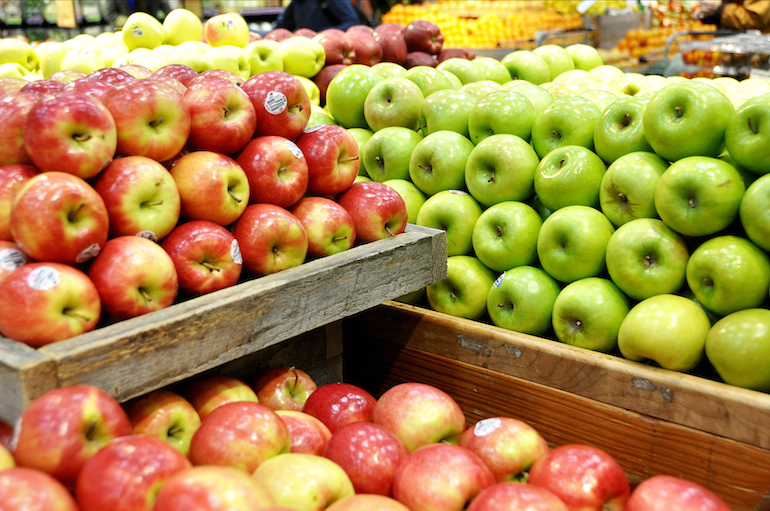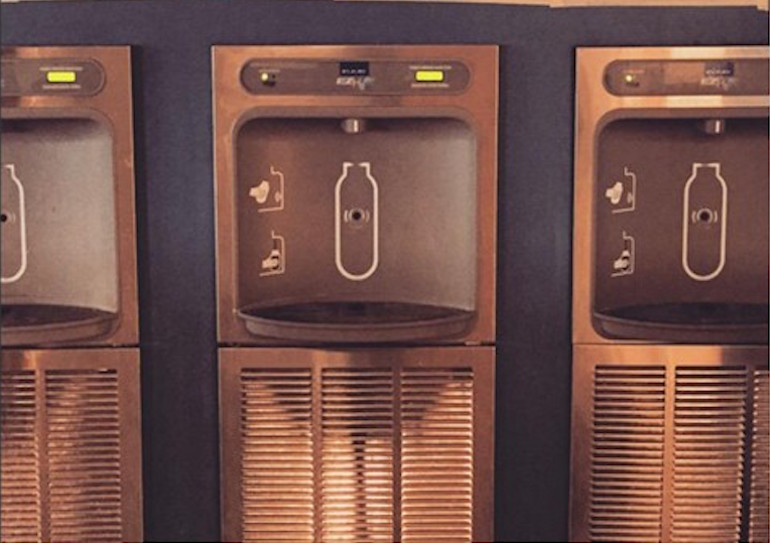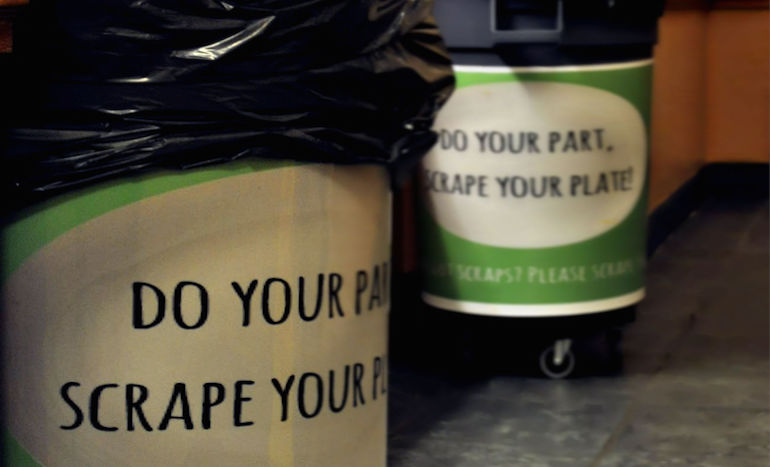If there is one thing that students are really good at, it is complaining about their dining hall food. This is true of students at all college campuses. But Georgetown Dining has not only made efforts to improve the quality and variety of its foods, but it has also made significant strides to be a leader in sustainability on campus.
Here is a list of 8 reasons why Georgetown students should be proud to swipe their GoCards at Leo’s.
1. Composting
Georgetown dining diverts 25 tons of waste from landfills each month.
2. Local Purchasing

Photo by Emma Delaney
Think of Leo’s as your new favorite farm-to-table restaurant. Its produce is sourced seasonally from Virginia, Maryland, West Virginia, North Carolina and Pennsylvania. Georgetown Dining also receives its dairy products from Baltimore, MD.
3. Feel Safe About Your Seafood

Photo by Yonatan Soler
100% of the seafood served in the dining hall is sourced from the Monterey Bay Aquarium Seafood Watch, a program that helps consumers and businesses choose seafood that is fished or farmed in a way that protects our oceans.
4. Tray-less Dining

Photo by Vicky Gu
The absence of trays at Leo’s means that more water is conserved.
5. Water Filtration

Photo Courtesy of Georgetown Dining
The water filtration stations at Leo’s now divert half a million water bottles from landfills each year. So, don’t forget to bring your reusable water bottle to Leo’s everyday.
6. 100% of Fryer Oil is Recycled
When used oil is poured down the drain it can adversely affect the water in our local sources. Thank you Leo’s for helping us to avoid this problem.
7. Leo’s Bakery

Photo by Justin Schuble
Did you know Leo’s has a bakery? Not only does Leo’s make its own house-made pizza dough, it also bakes fresh artisanal breads, vegan banana and pumpkin breads, desserts and pastries.
8. Garden to Garbage

Photo by Justin Schuble
Leo’s composts pre and post-consumer organic waste. This means that 25 tons of organic waste from Georgetown University is composted monthly and diverted from landfills into nutrient rich soil.
P.S. This soil is even used at the White House and State Department gardens.

